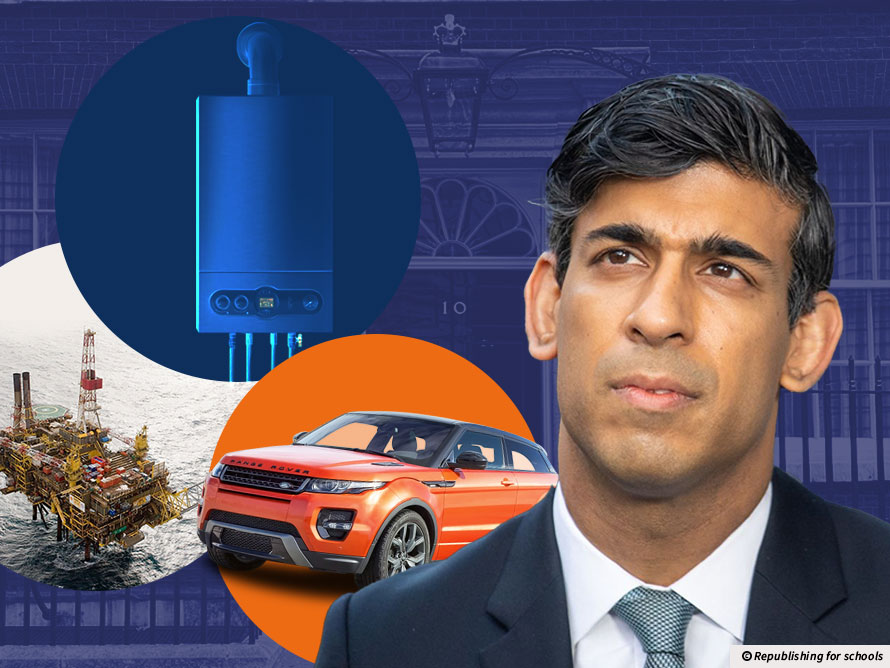Are we all to blame? Rishi Sunak has hailed in the weekend with announcements of a U-turn on fulfilling the UK’s net-zero goals. But is public opinion responsible for the government’s “war on the climate"?
UK slammed for U-turns on net-zero pledges
 Anti-climactic: Some have claimed that Sunak’s climate U-turns could be the “greatest mistake of his premiership".
Anti-climactic: Some have claimed that Sunak’s climate U-turns could be the “greatest mistake of his premiership". Glossary
Spate - A series of things in quick succession.
Net zero - When the gases going into the atmosphere are balanced by those being taken out of it.
Reprehensible - Disgraceful. Deserving of criticism.
Paris Agreement - An agreement signed by 196 countries to try to limit global warming.
ECIU - Energy and Climate Intelligence Unit. A non-profit based in the UK.
GDP - Short for Gross Domestic Product, the measure of all the goods and services produced inside a country.
Myopic - Short-sighted.
